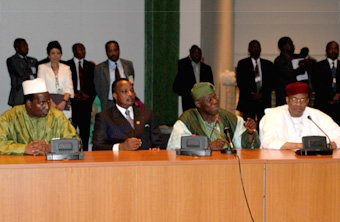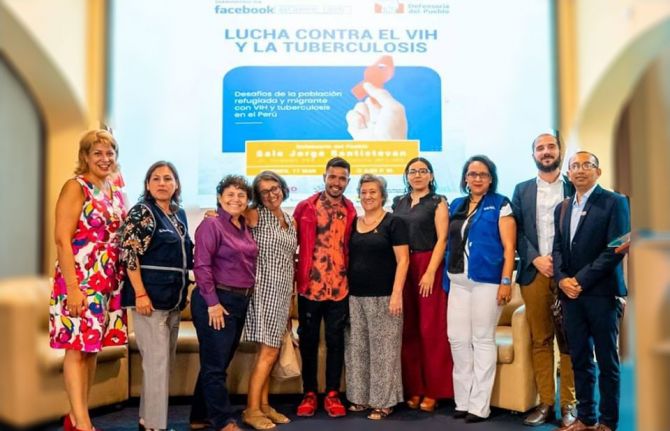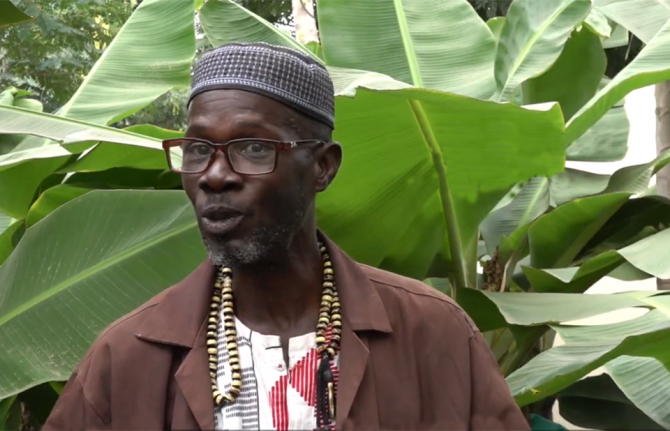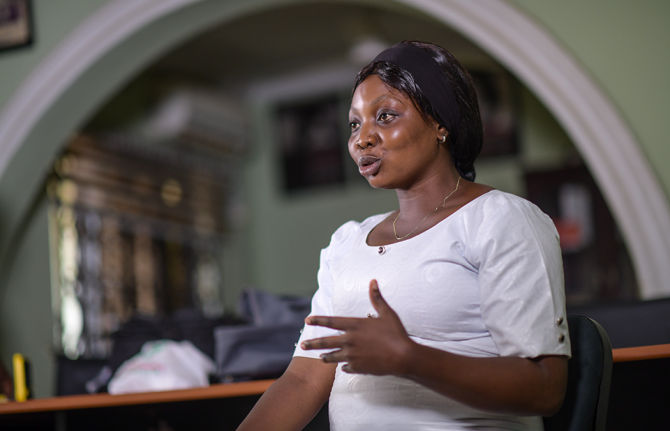
Feature Story
New African resolve to combat AIDS, TB and Malaria
08 Mayo 2006
08 Mayo 2006 08 Mayo 2006
From right: Representative of UN Secretary General, Executive Director UNAIDS, Dr Peter Piot; President of Niger Republic, Mamodou Tandja and President Council of Senate Senegal, Mbaye-Jacques Diop on arrival for the opening session of the meeting of Heads of State and Government at the Special Summit of the African Union on HIV/AIDS, Tuberculosis and Malaria in Abuja
Photo: Sunday Aghaeze
African leaders and Heads of State recently met in Abuja, Nigeria at a Special Summit on HIV/AIDS, Tuberculosis and Malaria to address the challenges posed by the three diseases that kill an estimated four million Africans every year.
Organized by the African Union in collaboration with UN Agencies and other development partners, and at the invitation of Nigerian President Olusegun Obasanjo, the Special Summit adopted the Abuja Call for accelerated action towards Universal Access to AIDS, tuberculosis and malaria (ATM) services in Africa, and a resolution to achieve this by 2010. The delegates also adopted an African Common Position to be presented to the High Level Meeting on AIDS in June 2006.
In the Abuja Call, participants urged for intensified leadership at all levels; further commitments regarding human rights; increased mobilization of resources including negotiations for debt cancellation; and collective advocacy with multilateral and bilateral donors.
African leaders renewed their commitment to allocate 15% of their national budgets to health, and to incorporate health financing plans into national development plans.
“For the first time the political commitment exists to work towards Universal Access to HIV prevention, treatment and care, but getting this will require that once more we change gear and further accelerate the response to AIDS. We have no other options that will save entire societies”, said UNAIDS Executive Director Dr Peter Piot.
Nigerian President Olusegun Obasanjo commended African countries for the progress they had so far made in responding to AIDS, tuberculosis and malaria. The Nigerian leader called for the development of structures and systems guaranteeing better and more transparent utilization of funds, as well as for the development of strategies translating national level goals into community targets.

Press Conference after the closing of the Special Summit (left to right) Alpha Oumar Konaré, Chairperson of African Union Commission and former President of Mali; President Sassou-Nguesso of Republic of Congo, Chairman of the African Union; President Olusegun Obasanja of Nigeria, Host of the Special Summit and Alhaji Mamadou Tandja, President of Niger Republic
Photo: Sunday Aghaeze
Also speaking on the occasion, African Union Commission Chairperson, Prof. Alpha Konare, outlined measures Africa should adopt to successfully deliver AIDS, tuberculosis and malaria services. These include local production of essential medicines, greater mobilization of resources, more efficient utilization of resources, and ensuring access to the most vulnerable groups.
Sub-Saharan Africa has just over 10% of the world’s population, but is home to more than 60% of all people living with HIV - 25.8 million. In 2005, an estimated 3.2 million people in the region became newly infected, while 2.4 million adults and children died of AIDS. Among young people aged 15-24 years, an estimated 4.6% of women and 1.7% of men were living with HIV in 2005.
Related links
Read Statement of the UNAIDS Executive Director Dr Peter Piot at the Special Assembly of Heads of State and Government, Abuja, 4 May 2006
Photo gallery
3 April 2006
4 April 2006
Related
 Peru approves groundbreaking law to extend health coverage for migrants with HIV and TB
Peru approves groundbreaking law to extend health coverage for migrants with HIV and TB

21 de octubre de 2024
 Leave no one behind and that includes people who use drugs
Leave no one behind and that includes people who use drugs

04 de mayo de 2023
 Dangerous inequalities and overcoming them
Dangerous inequalities and overcoming them

18 de noviembre de 2022
